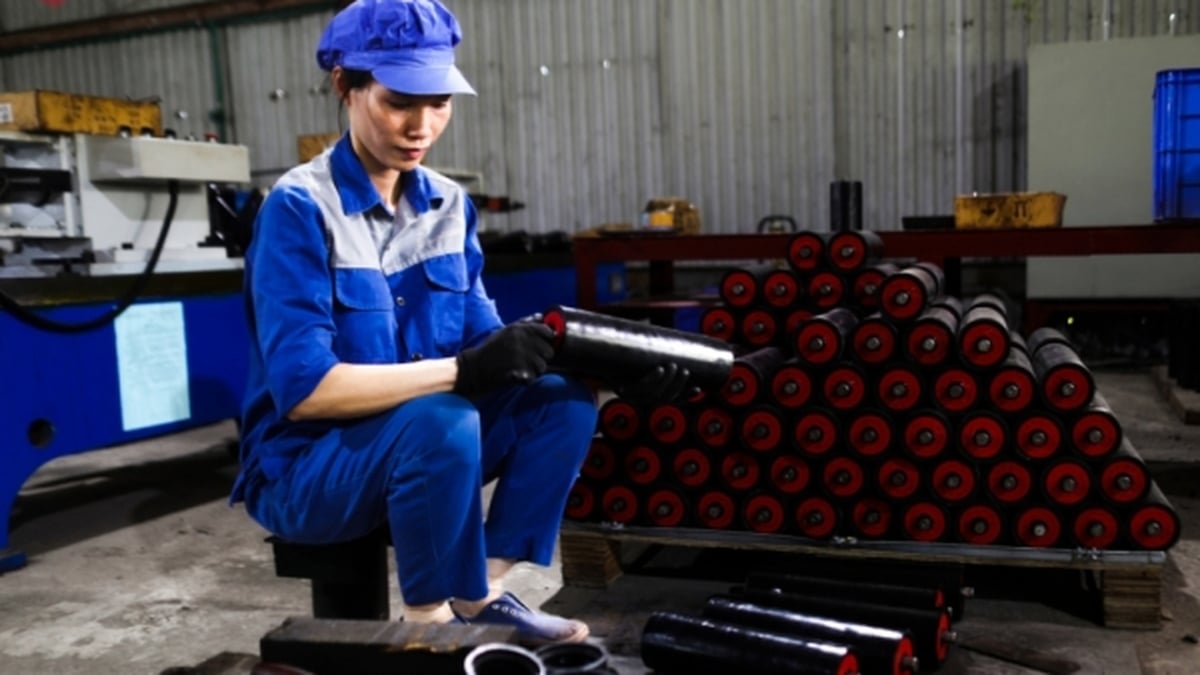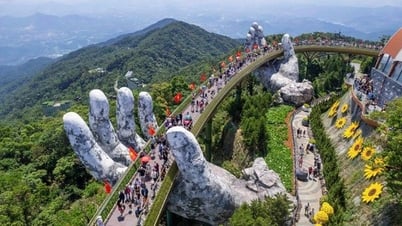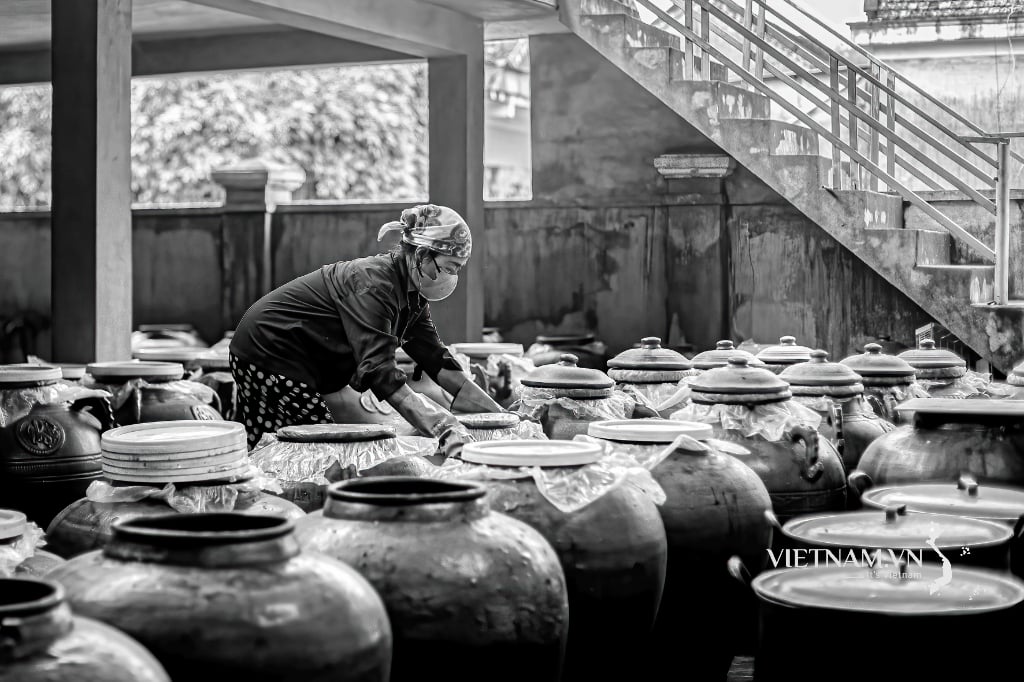According to the National Center for Hydro-Meteorological Forecasting, northern provinces are experiencing widespread heat waves, with temperatures reaching 38, or even more than 39 degrees Celsius.
During the hot season, many people have the habit of bathing in cold water immediately after being in the sun to cool down. However, according to Dr. Nguyen Thi Diem Huong, University of Medicine and Pharmacy Hospital, Ho Chi Minh City - Branch 3, this is a habit that has many potential risks, can directly affect health and even endanger life.

People in the northern provinces are suffering from a prolonged heat wave, with temperatures reaching 40 degrees Celsius in some places. (Photo: Manh Quan).
Firstly, taking a cold shower after being in the sun can increase the risk of heart attack and stroke due to the following factors.
When the body is exposed to sudden cold temperatures, the blood vessels will constrict, reducing heat. This can increase blood pressure, increasing the risk of blood vessel rupture, leading to stroke or increased pressure on the heart leading to myocardial infarction, especially in people with existing cardiovascular disease.
In addition, when the body is exposed to cold water, the heart rate increases to try to maintain normal temperature, increasing the heart's need for oxygen. However, when the blood vessels are constricted, the heart cannot receive enough oxygen and leads to the risk of myocardial infarction.
Another factor that increases the risk of stroke due to cold showers after coming back from hot weather is that when exposed to cold water, the body will activate the sympathetic nervous system, leading to the release of adrenaline in the body. This is a substance that can cause constriction of blood vessels in the heart, increasing the risk of myocardial infarction. This problem often occurs in the elderly, with a weak cardiovascular system that is easily affected by sudden changes in temperature.
These risks also increase in people with other underlying diseases such as diabetes, overweight, obesity, and lack of exercise...
In addition to increasing the risk of stroke, taking a cold shower after being in the sun can cause heat stroke when the body temperature drops suddenly. This phenomenon often occurs in the elderly when the ability to adapt to temperature changes decreases.
Mild signs of hypothermia include shivering, dizziness and lightheadedness, fatigue, nausea, and a rapid heart rate. In severe cases, breathing may become slow and shallow, and the heart rate may slow and become weak.
In addition, when the body sweats and releases heat, taking a cold shower at this time will clog the pores, the sweat cannot escape and can easily cause a cold. When the body heats up and sweats a lot, the body will lose electrolytes such as potassium, sodium... At this time, if you take a cold shower suddenly, the body will lose electrolyte balance, adversely affecting the heart's activity.
The bathing space also plays an important role in health. When taking a cold shower in an open space, people can accidentally inhale cold air. This can be a trigger for bronchial spasms in people with asthma, causing difficulty breathing and chest tightness.
Finally, taking a cold shower right after being in the sun can lead to sudden muscle contractions, causing cramps.
Dr. Huong recommends that people should wait at least 20-30 minutes for sweat to dry before bathing. During this time, you should continuously hydrate your body, drink sips and divide the drinking time evenly, and avoid letting the fan or air conditioner blow directly on your body to avoid sudden temperature changes.
When bathing, do not use water that is too cold, do not pour water from above the head, wet the feet and hands first to let the body gradually adapt to the change in temperature, avoiding complications later.
Source: https://dantri.com.vn/suc-khoe/mien-bac-nang-nong-40-do-bac-si-chi-ra-sai-lam-khi-tam-co-the-gay-dot-quy-20250804153624428.htm






















































![[Maritime News] Two Evergreen ships in a row: More than 50 containers fell into the sea](https://vphoto.vietnam.vn/thumb/402x226/vietnam/resource/IMAGE/2025/8/4/7c4aab5ced9d4b0e893092ffc2be8327)












































Comment (0)